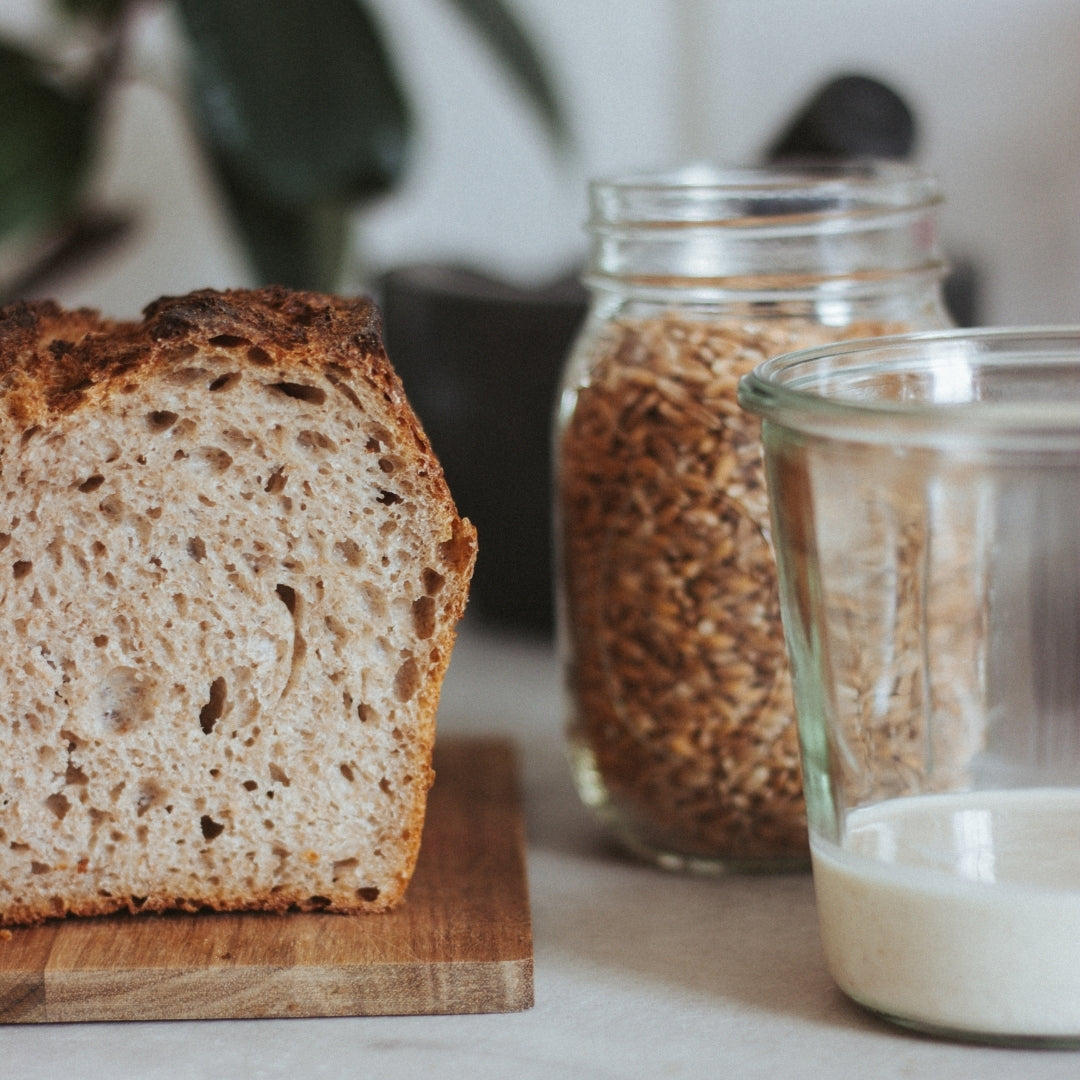Live Better, Live Plant-Based.
Live Better, Live Plant-Based.

How-to Increase the Bioavailability of Nutrients on a Plant-Based Diet
September 22, 2020 4 min read
We love plant-based meals because they're LOADED with delicious goodness. But did you know the digestive process, and absorption of nutrients isn't the same for everyone?
To help you get the most out of your daily meals, we've partnered with certified Plant-Based Nutritionist, Paula from @PlantifulTaste to bring you her 6 easy tips to boost the absorption of nutrients from your daily meals! Enjoy!

A wholesome plant-based diet is loaded with nutrients and beneficial plant substances. But during the digestive process, the absorption of nutrients is not always the same. Many different lifestyle factors, diet-habits and of course our gut health play a role here. But let’s take a closer look at the actual steps we can do to boost the bioavailability of the nutrients in our daily meals.
Certain food ingredients can inhibit the bioavailability of nutrients in our body. Since they make nutrients completely or partially unusable for us, they are often referred to as "anti-nutrients".
This can happen in different ways, for example: the nutrient binds in a form that is not recognized by the receptors on the surface of the small intestine.
Another possibility is that the nutrient is converted into an insoluble form or competes with another nutrient for the same absorption or transport system and can therefore no longer be absorbed.
Here are 6 easy tips, that we can turn into a habit and therefore make sure that your body receives all the nutrients it needs more easily:
1. SOAKING GRAINS, LEGUMES, NUTS AND SEEDS

Photo: @plantifultaste
Do you feel bloated after eating whole grains products or even just raw oats?
In humans and animals with one stomach, the phytic acid, found in all grains, inhibits enzymes which are needed for the breakdown of proteins and starch in the stomach. It is this lack of enzymes which results in digestive difficulties.
But even more important to note: These phytic acid molecules bind with other minerals, such as calcium, magnesium, iron and zinc, which make these important minerals unavailable to us!
Ironically, most whole grain breads with the high amounts of phytic acid, generally perceived as “healthy,” is not always that beneficial, if not produced in a traditional way (like sourdough). By soaking grains, legumes, nuts and seeds before cooking/baking/eating, you transform them into nutritious and easy digestible foods!
For a detailed guide on soaking and more information, check out my blogpost:
https://www.plantifultaste.com/soaking-guide/
2. SPROUTING & FERMENTING

Photo: @plantifultaste
If you want to take it one step further after soaking and not only break down the anti-nutrients but also boost the containing nutrients, enzymes and beneficial plant substances to another level – let them sprout or ferment!
This process transforms simple seeds and basic produce into powerful superfoods!
3. COOKED VS RAW

Photo: @plantifultaste
Cooked carrots, sweet potato, zucchini, spinach, mushrooms, asparagus, many cruciferous vegetables, also supply more antioxidants, such as carotenoids and ferulic acid, to the body than they do when raw. In addition, cooking these vegetables breaks down harmful anti-nutrients nutrients like oxalic acid.
Of course we should always go for a gentle cooking, or better yet, steaming, and choose a good balance of raw, watery foods that are easy to digest and cooked high-fiber foods for a wholesome meal – just make sure to enjoy the best out of both worlds!
4. INCLUDING MORE SOUR AND BITTER FOODS INTO YOUR DIET

Photo: @plantifultaste
Holistic principles like the Traditional Chinese Medicine and Ayurvedic food wisdom recommends a balance of tastes in our food for better overall health.
Both, bitter and sour foods are thought to stimulate the digestive system.
Sour foods can be helpful to build a stable stomach acid, which is key to break down nutrients and the bitters are really important for the production and flow of digestive juices.
5. ADDING A SOURCE OF VITAMIN C TO YOUR MEAL

Photo: @plantifultaste
There are so-called absorption-promoting substances that increase the bioavailability of nutrients. For the minerals iron, calcium and zinc, vitamin C is the most important of these. You can combine this, for example, in the form of fresh lemon or orange juice, fresh peppers or herbs with a mineral-rich meal.
6. AVOIDING COFFEE AND BLACK/ GREEN TEA DURING YOUR MEAL
Photo: @plantifultaste
Polyphenols - for example, the tannins in coffee and (black and green) tea are inhibiting factors for the bioavailability of nutrients. Therefore, it can have an unfavorable effect on the mineral intake if these beverages are consumed at the same time as a meal rich in iron, calcium, magnesium or zinc.
Ideally, you should avoid coffee, black or green tea 30 minutes before and about 2 hours after a mineral-rich meal. Herbal teas, on the other hand, can be consumed without negative effects on the nutrient intake during a meal.
I hope these tips can help you to boost your diet!
But most importantly: ENJOY each meal to the fullest, take your time and be mindful while eating – because a proper digestion starts in our mouth and only in a non-stressed & happy gut!
xx Paula
hello@plantifultaste.com
For more nutritious tips and tricks, be sure to check out www.plantifultaste.com and @plantifultaste on Instagram!
Subscribe
Sign up to get the latest on sales, new releases and more …

